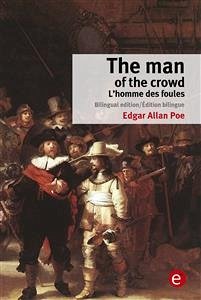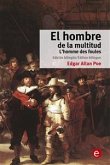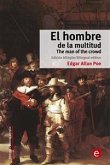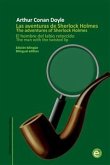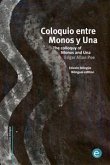The story is introduced with the epigraph "Ce grand malheur, de ne pouvoir être seul" — a quote taken from The Characters of Man by Jean de La Bruyère. It translates to This great misfortune, of not being able to be alone. This same quote is used in Poe's earliest tale, "Metzengerstein". After an unnamed illness, the unnamed narrator sits in an unnamed coffee shop in London. Fascinated by the crowd outside the window, he considers how isolated people think they are, despite "the very denseness of the company around". He takes time to categorize the different types of people he sees. As evening falls, the narrator focuses on "a decrepit old man, some sixty-five or seventy years of age", whose face has a peculiar idiosyncrasy, and whose body "was short in stature, very thin, and apparently very feeble" wearing filthy, ragged clothes of a "beautiful texture". The narrator dashes out of the coffee shop to follow the man from afar. The man leads the narrator through bazaars and shops, buying nothing, and into a poorer part of the city, then back into "the heart of the mighty London". This chase lasts through the evening and into the next day. Finally, exhausted, the narrator stands in front of the man, who still does not notice him. The narrator concludes the man is "the type and genius of deep crime" due to his inscrutability and inability to leave the crowds of London. Le narrateur est assis dans un café londonien et regarde avec un grand intérêt la foule qui se presse dans la rue. Il classe ainsi les passants dans différentes catégories sociales suivant leur habillement et leur physionomie. Fasciné par la vue d'un vieil homme à l'expression très particulière, il décide de le suivre à travers ses déambulations apparemment erratiques et remarque qu'il semble très mal à l'aise dès que la foule devient clairsemée. Après l'avoir suivi toute la nuit et la journée du lendemain dans différents quartiers de Londres, le narrateur, épuisé, s'arrête devant le vieil homme et le regarde bien en face sans même attirer son attention. Le narrateur, abandonnant sa filature, en arrive à la conclusion que le vieil homme est un « homme des foules » qui « refuse d'être seul».
Bitte wählen Sie Ihr Anliegen aus.
Rechnungen
Retourenschein anfordern
Bestellstatus
Storno

